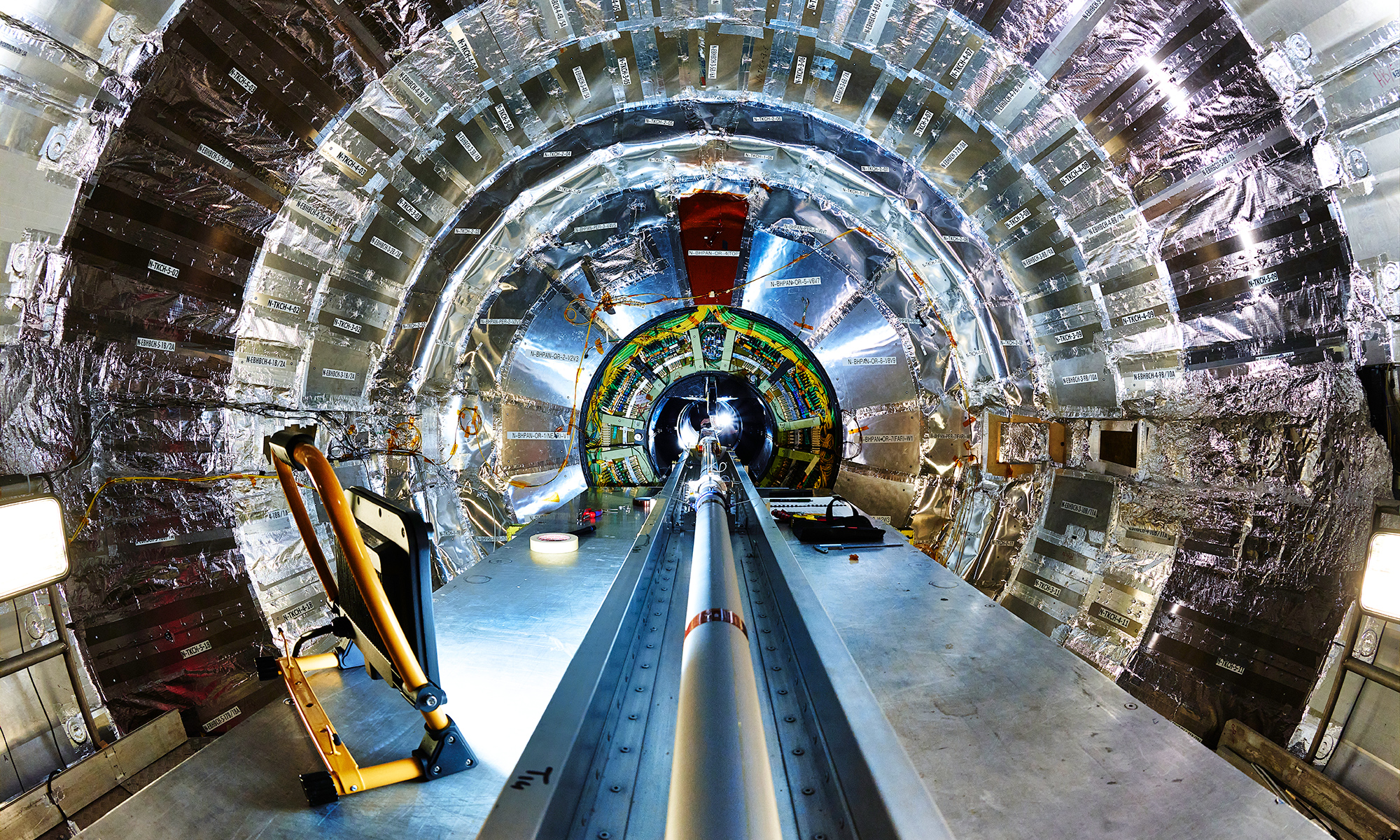Frank Rosinski waited nine months for the phone call that came at 7 p.m. on April 27 from the University of Rochester’s Strong Memorial Hospital.
Ninety minutes later, the Greece resident arrived at the hospital, and the following day received the heart transplant that has given him a new lease on life.
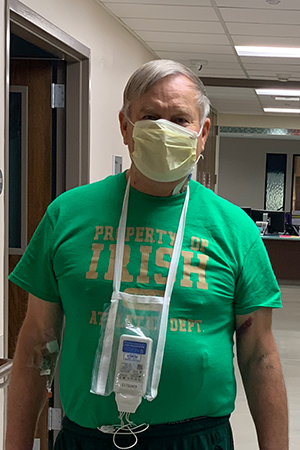
Rosinski, 69, says he had no trepidations about entering the hospital in the midst of the COVID-19 pandemic.
“This was my first and perhaps only opportunity,” he says. “I had been waiting a long time for this.” His only thought: “Let’s go for it.”
The retired Canandaigua City School District administrator spoke this week from home, where he’s recovering well and looking forward to resuming the outdoor activities he had to forgo the last two years.
A milestone amid a pandemic
Though most elective surgeries were suspended at Strong Memorial Hospital nine weeks ago because of the pandemic, surgeons there have performed a number of organ transplant procedures—17 liver, 8 kidney, and 3 heart—during that time. The numbers included a milestone 1,800th liver transplant since the hospital began doing the procedure in 1992.
“Patients who are on waiting lists for organ donations don’t have the luxury of time,” says Sunil Prasad, chief of cardiac surgery at Strong. “They have only a certain amount of time before their organs fail to the point of no return.”
The social distancing that has succeeded in slowing the spread of the disease—and helped prevent Strong from being overwhelmed with COVID-19 patients—has further increased the time before the disease will run its course, says Prasad, the Dr. Jude S. Sauer Family Distinguished Professorship in Cardiac Surgery. That success has reinforced the need to continue transplants for the sickest patients
Roberto Hernandez-Alejandro, chief of solid organ transplant surgery at Strong, says the hospital has taken a “cautious” approach in prioritizing which patients should receive transplants. Initially, for example, the hospital put a hold on all liver and kidney transplants involving living donors until it became clear Strong could manage COVID-19 patients and still have sufficient COVID-free areas to ensure the safety of both organ donors and recipients.
Last week, the hospital performed its first live-donor kidney transplant in nine weeks, with a second on Tuesday, and expects to resume live-donor liver transplants in June, Hernandez says. The hospital is now in the process of resuming other elective surgeries as well.
Numerous precautions are being taken to ensure safety for all patients, Hernandez says.
- Every employee of Strong Memorial Hospital and the Medical Center is screened daily for COVID symptoms before arriving for work.
- Wearing of masks and social distancing are strictly enforced.
- All patients must first test negative for COVID-19 before going to the operating room.
“Personally, I feel more comfortable and safe being in the hospital, than being out shopping or trying to buy coffee in a shop,” Hernandez-Alejandro says.
Prasad concurs. “The hospital is probably the safest place to be in the COVID era because everybody is screened,” he says.
Though family members are still restricted from visiting at the hospital, Hernandez-Alejandro says, “we’ve been working very hard with patients and family members, providing (online) video chats and constantly communicating with family members.”
Rely on experts, not self-diagnosis
Rosinski remembers all too clearly when his battle began: February 13, 2018. “I was not feeling well, whatsoever,” he says.
“I was having a hard time walking. Stubborn as I am, I drove myself and my wife to (Unity) hospital, got out of the car, and had a hard time walking the 20 feet into the emergency room.”
During the next eight hours, he “coded” three times, and by 5 p.m. was at Strong, where a device was implanted to stabilize his heart. Strong is a leader in heart failure and the use of the high-tech pumps, known as left ventricular assist devices.
During his 39-day hospitalization, Rosinksi’s heart stopped three more times and recovery was slow.
“I had to relearn how to read, write, talk, and walk,” Rosinski says. “I felt like a total invalid. But with the good care that Strong provided me, and with all the rehab, I was able to walk out of the hospital.”
And now, with his new heart, he’s concentrating on getting through the first critical six months with flying colors, by adhering to a medication regimen—five times daily—making sure he follows a healthy diet, and getting plenty of exercise.
Prasad shares the concern of surgeons nationwide that many people are dying of heart attacks and strokes at home rather than risk coming to a hospital, out of fear of contracting COVID-19. “What we’ve found in Monroe County is that the mortality at home from those causes has gone up. So. it’s very important in the COVID period that patients who are sick still seek help,” he says.
Rosinski agrees. “People should at least call their primary care physicians and find out what’s going on, so they’re not trying to make their own diagnosis,” he says. “We may think we know a lot from the internet and reading medical journals, but we don’t know everything. Let’s rely on the experts we can count on to resolve issues as quickly as possible.
Read more
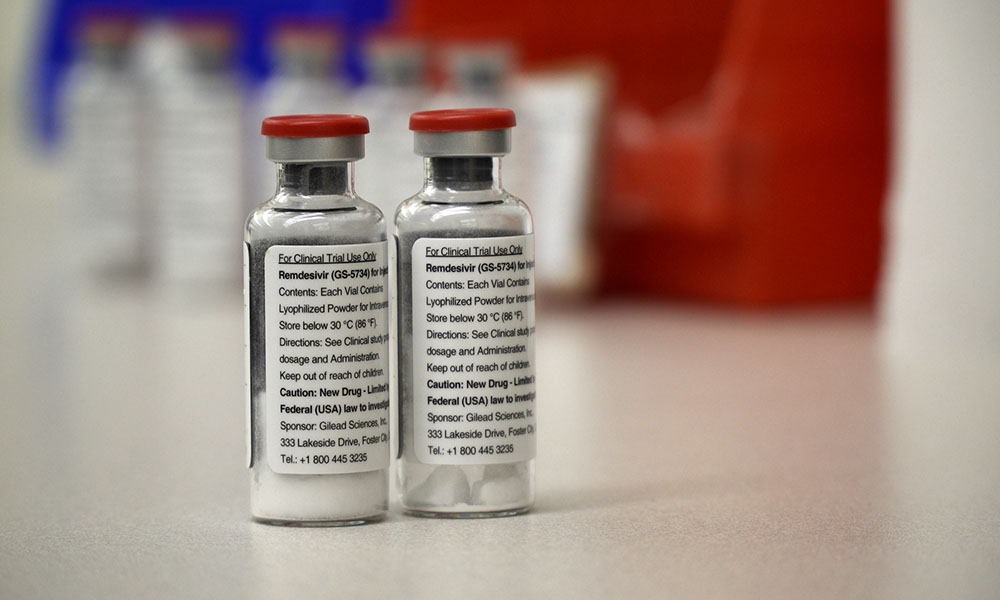 Remdesivir results ‘promising’ in Medical Center clinical trial
Remdesivir results ‘promising’ in Medical Center clinical trialA Medical Center team is leading an NIH-sponsored clinical trial of a potential antiviral treatment of COVID-19.
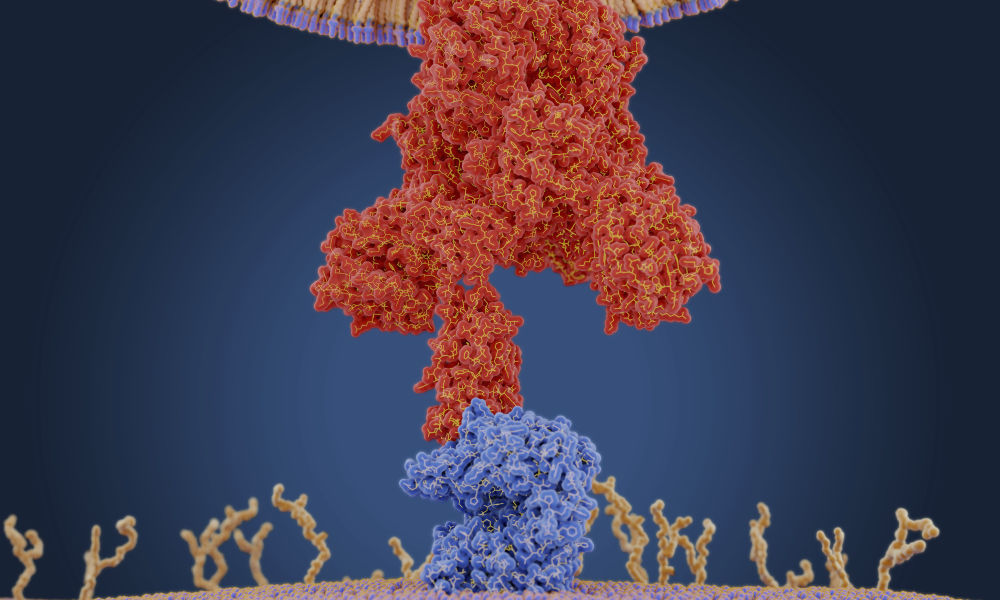 COVID-19: What’s RNA research got to do with it?
COVID-19: What’s RNA research got to do with it?Rochester research on RNA provides an important foundation for understanding coronavirus.
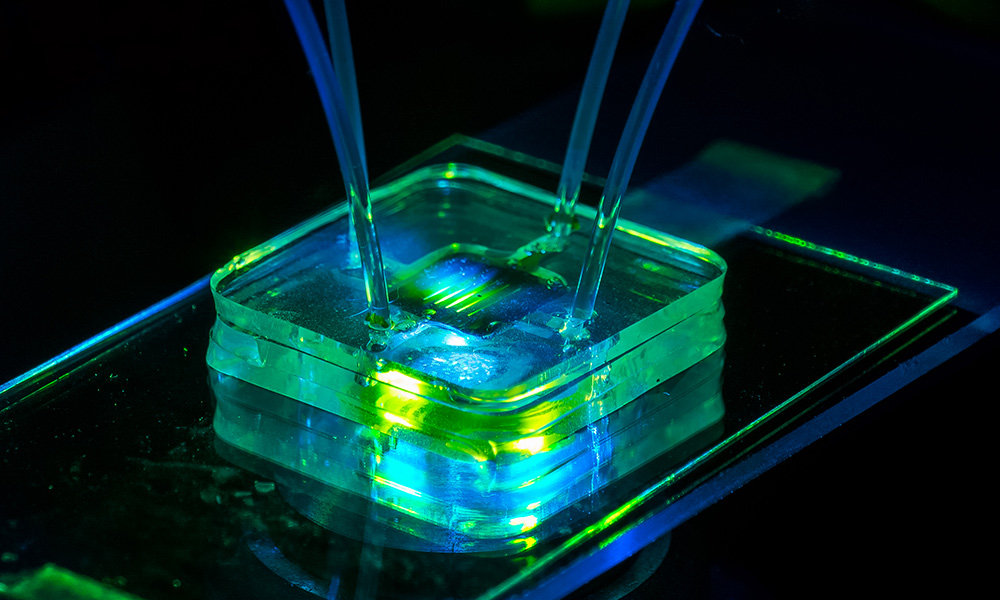 Rochester researchers pursue quick ways to detect COVID-19
Rochester researchers pursue quick ways to detect COVID-19Rochester faculty are turning previous research avenues to quickly detect novel coronavirus and speed treatment.



